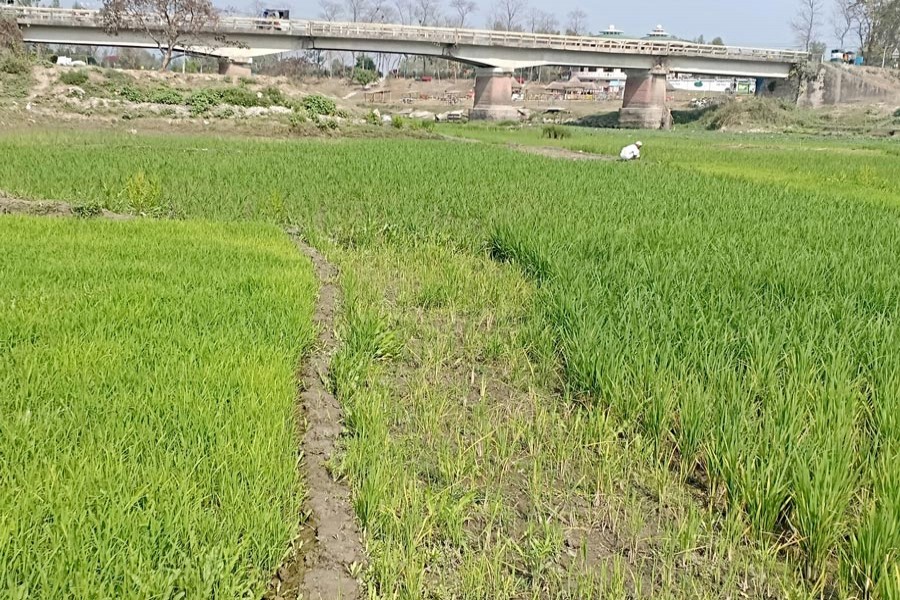RANGPUR, Mar 05: Farming of crops on dried-up river beds in different districts under Rangpur division has financially benefited thousands of extreme poor people, especially landless farmers living along river basins.
A good number of river eroded people living on the river basin have started different crops and vegetables cultivation on the both banks of the rivers this year as in previous years after drying up of water from the riverbeds, sources said.
Croplands along the river-beds of Teesta, Ghaghot, Dharla, Brahmaputra, Karotoa, Atrai, Jamuna and other rivers and low-lying char areas have taken an impressive green look with an excellent growth of Rabi crops in the region, presently.
According to the Department of Agriculture Extension (DAE), Rangpur more than 70,000 hectares of such lands have been brought under paddy, wheat, maize, mustard, pulses, vegetables, groundnut, tobacco and other crop farming this season in the areas.
There is no necessity to use chemical fertilisers on the field to grow the crops as the riverbed is very fertile. For this reason the growers used nominal organic fertilisers and invested a small amount of money for it, sources added. The harvesting of the vegetables like cabbage, cauliflower, eggplant, bean, potato, cucumber and chilli has already begun in the char areas.
Ataur Mia (50) of Nishbetganj area at Rangpur Sadar Upazila told The Financial Express that he has been cultivating maize and paddy on river beds for the last ten years and thus he has been earning his livelihood.
Witnessing his success a number of farmers of his area began cultivating various crops on river beds, he added.
Horticulture Specialist Khandaker Md Mesbahul Islam of DAE said, cultivation on these lands is taking place due to drying up of the rivers and emergence of hundreds of chars (shoal) resulting huge deposition of silts, he said.
Being motivated by the field level agriculture officers of DAE, hundreds of farmers started to cultivate paddy, wheat, maize, pulses, pumpkin, oil seeds, potato and other vegetables there and have already become financially benefited, he added.


